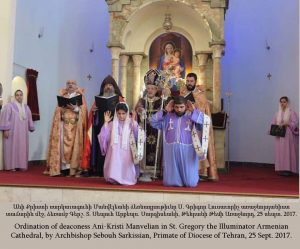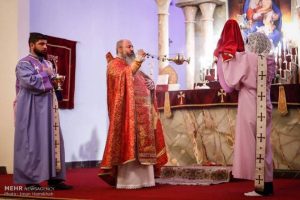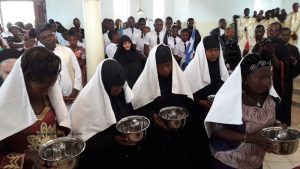 The female diaconate has been restored with the ordination of Ani-Kristi Manvelian, 24, in Tehran as a deacon for parish life who is not a nun.
The female diaconate has been restored with the ordination of Ani-Kristi Manvelian, 24, in Tehran as a deacon for parish life who is not a nun.
It is understood as a “restoring” rather than “reinstating” of the Order of Deacon for women. This act is see as a precedent. The ordination happened at St. Sarkis Church on 25 September 2017 by Archbishop Sebouh Sarkissian, the Primate of the Diocese of Tehran (Catholicosate of Cilicia).
Archbishop Sarkissian said:
“Today, our Church is confronting the imperative of self-examination and self-critique. It is imperative to rejuvenate the participation of the people in the social, educational and service spheres of the Church. It is our deep conviction that the active participation of women in the life of our Church would allow Armenian women to be involved more enthusiastically and vigorously, and would allow them to be connected and engaged. They would provide dedicated and loving service [to the people]. The deaconess, no doubt, would also be a spiritual and church-dedicated mother, educator, and why not, a model woman through her example. It is with this deep conviction that we are performing this ordination, with the hope that we are neither the first nor the last to do it.”
 The narrative of the event was communicated by Hratch Tchilingirian on his blog.
The narrative of the event was communicated by Hratch Tchilingirian on his blog.
The Armenians have had a tradition of female deacons serving, like the male deacons, at the Altar.
Deaconess Ani-Kristi Manvelian served the Christmas Eve Liturgy on January 5th. For the Archbishop his act as the head of diocese is “to revitalise the participation of women also in our church’s liturgical life,” adding, “do not be surprised, a woman could also become a servant of the Holy Altar.”
